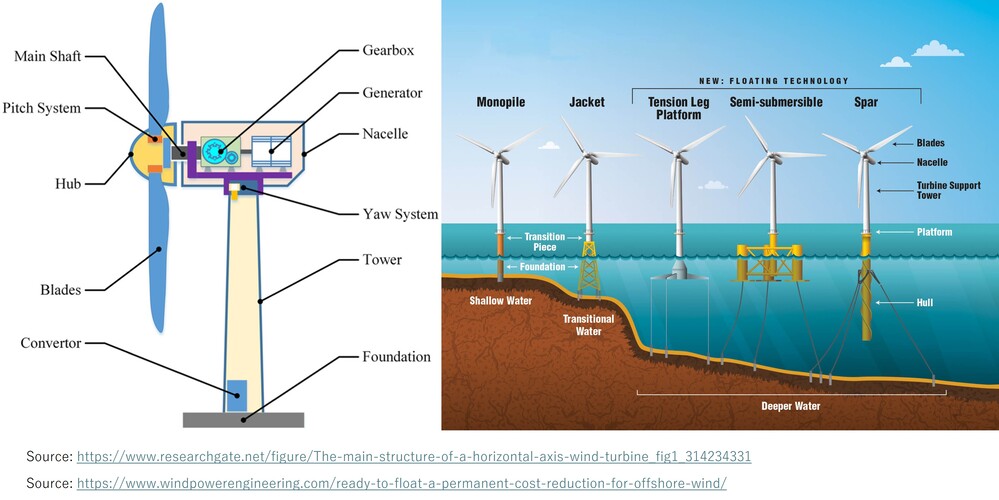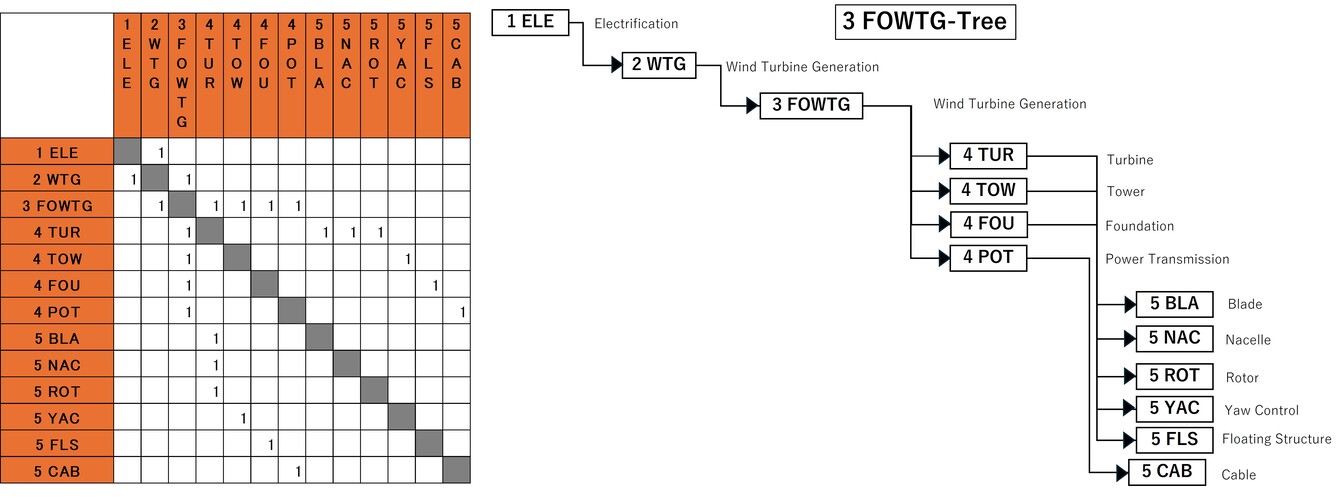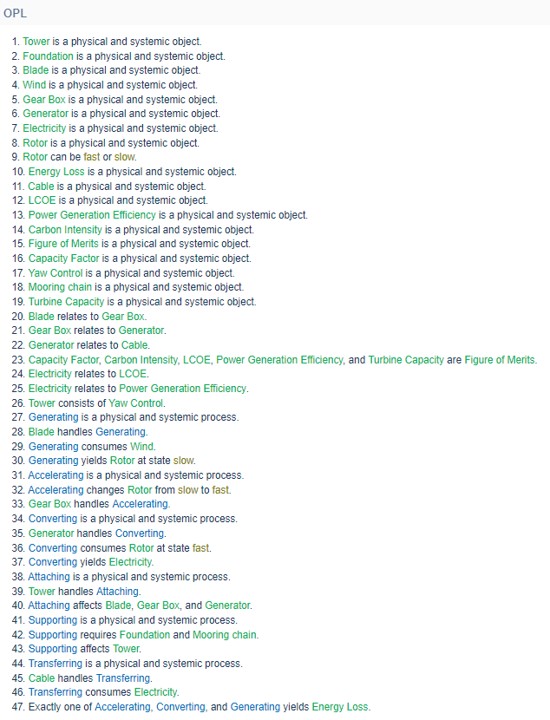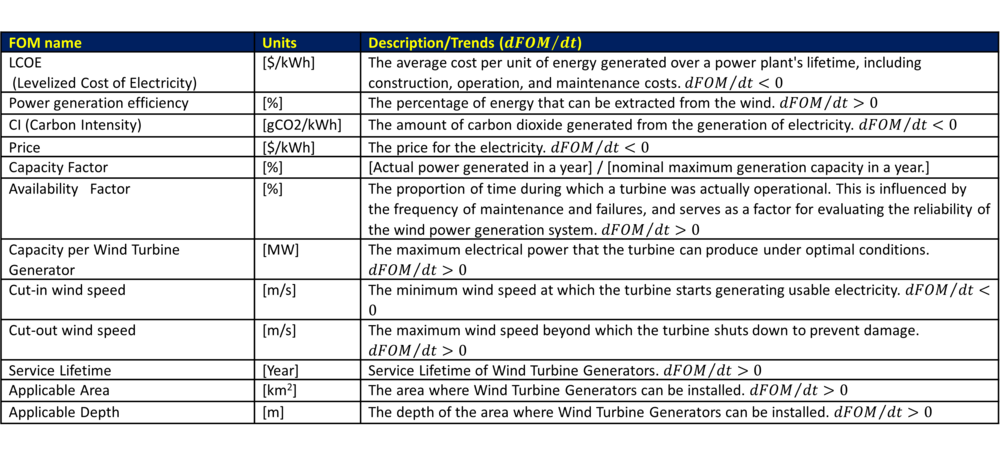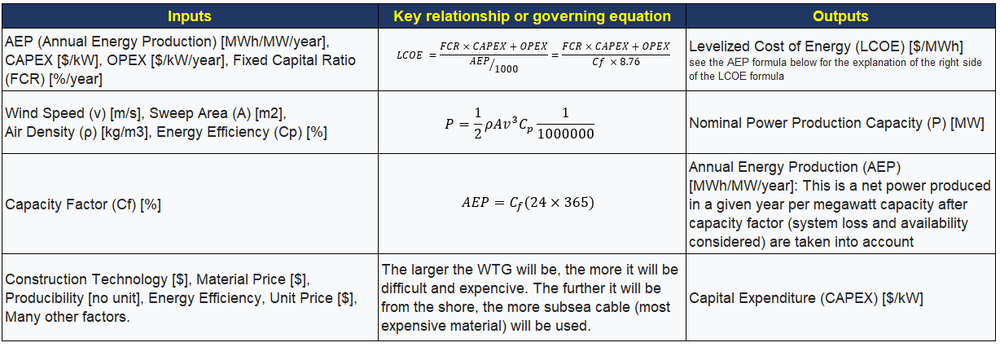Difference between revisions of "Floating Offshore Wind Turbine Generator"
| Line 29: | Line 29: | ||
==Figures of Merit== | ==Figures of Merit== | ||
The table below is to show a list of FOMs of | The table below is to show a list of FOMs of 3FOWTG. | ||
[[File:FOMlist.png|1000px]] | [[File:FOMlist.png|1000px]] | ||
Revision as of 15:26, 10 October 2024
Technology Roadmap Sections and Deliverables
Team 20 is to present a "level 3” roadmap of Floating Offshore Wind Turbine Generators. The following code is the identifier.
- 3FOWTG - Floating Offshore Wind Turbine Generator
Roadmap Overview
Floating Offshore Wind Turbine Generators are a technology that generates electricity by converting wind energy using turbines mounted on floating structures, which are moored to the seabed and remain stable at sea or on lakes. This technology is a form of offshore wind power, and compared to fixed systems, Floating Offshore Wind Turbine Generators can be installed in deeper waters or in coastal areas with limited space.
As the global shift toward renewable energy accelerates, wind power plays a central role. As of 2022, global wind power capacity has reached 906 GW, but the vast majority of this is onshore wind power, with offshore wind accounting for only 7.1%. Offshore wind power is divided into two types: "fixed" and "floating." This roadmap focuses on the latter, which is still in its early stages of development.
Fixed wind power involves anchoring the turbine to the seabed, usually in shallow waters up to 50 meters deep, and is a relatively mature technology. In contrast, Floating Offshore Wind Turbine Generators, which are suited for deep-water areas or countries with limited coastal space such as Japan, the U.S. West Coast, and Norway, face fewer restrictions on installation locations. However, challenges remain in terms of stability at sea, transporting electricity to land, and reducing costs. Currently, floating systems are approximately twice as expensive as fixed systems, and large-scale commercialization is expected to take time. Nevertheless, as technology advances, the adoption of Floating Offshore Wind Turbine Generators is anticipated to increase significantly in the future.
Design Structure Matrix (DSM) Allocation
Roadmap Model using OPM
Team 20 hereby displays OPD of 3FOWTG – Floating Offshore Wind Turbine Generator (WTG) This consists of level 3 decomposed WTG, associated products and figure of merit (FOM). Associated OPL is displayed below. This represents the relationships among each object shown in the OPM above.
Figures of Merit
The table below is to show a list of FOMs of 3FOWTG.
The unit cost, and capacity per wind turbine are both extremely important figures of merit. When looking into what wind turbine to buy, these would influence which brand and model should be purchased. While one wind turbine may be significantly cheaper than another, the capacity of a more expensive turbine might be much greater. It is also important to consider the availability of the turbine. This is essentially average hours of operation due to unfavorable wind conditions. There is a range of wind speeds any turbine can operate at, from the cut in wind speed at the lower end of the range, to the maximum safe operating speed at the high end. The region in which a wind turbine is assembled affects the availability of the turbine, but by expanding the operational wind speeds, the availability can be increased.
Furthermore, a couple of detail FOM with related formula and relationship is shown in the table below.
